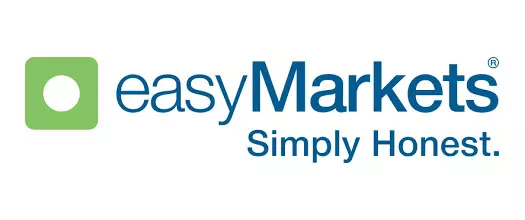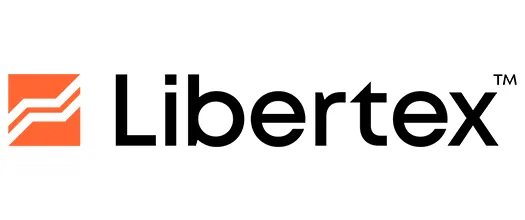Our team of expert traders tested several regulated and trustworthy UK trading platforms and compiled a top list of the best among them. Each trading platform operating in the United Kingdom received a quality score based on several factors, including Trustpilot ratings, regulation, fees and commissions, available trading platforms, customer service, and more.
Online trading with currency pairs, stocks, and other financial instruments is a strictly regulated activity in the United Kingdom. Legitimate online brokers looking to conduct business with traders from the local market must receive authorisation from the Financial Conduct Authority (FCA). Established in 2013, this entity oversees all financial services companies operating in the country. It monitors them for misconduct, provides guidelines, and safeguards the interests of consumers.
Brokers regulated by the FCA must adhere to strict consumer-protection and anti-fraud policies. All retail customers from the UK have their funds stored in segregated accounts and are entitled to negative balance protection. The financial watchdog requires licensed brokers to impose leverage caps on retail customers trading contracts for difference (CFDs) and other derivatives. These leverage restrictions serve as guardrails that protect inexperienced retail clients from sustaining massive losses and running up crippling debts when trading on margin with borrowed money.
| Regulators | Financial Conduct Authority (FCA) |
| Forex trading leverage | 1:30 |
| Stock leverage | 1:5 |
| CFD leverage | 1:30 |
Best UK brokers
Finding an online broker that meets your individual requirements, objectives, and trading style is an important but not necessarily easy task. To help Britons who wish to dip their toes into online trading, we compiled this list of the best brokerages that accept customers from the UK market. Our recommendations are based on a thorough research process that covers all aspects of the brokers’ operations, from trading costs and fees to market diversity and payments.
 TRADE NOWREAD REVIEWPlatformscTrader, DupliTrade, Fusion+ Copy Trading, MetaFX, MetaTrader 4, MetaTrader 5, TradingViewMin Deposit$0Fees
TRADE NOWREAD REVIEWPlatformscTrader, DupliTrade, Fusion+ Copy Trading, MetaFX, MetaTrader 4, MetaTrader 5, TradingViewMin Deposit$0Fees- No fees for deposits and withdrawals
- No fees on dormant accounts
Deposit MethodsCommissions£2.25 per lot plus spreads on Zero accountsSpreadEUR/USD: AVG 0.93 pips, GBP/USD: AVG 1 pips, USDJPY: AVG 1.7 pipsWithdrawal MethodsLeverage EU1:30Leverage non-EU1:500 (ASIC | Pro Account), 1:30 (ASIC | Retail Account), 1:500 (VFSC | Retail Account)InstrumentsCommodity CFDs, Crypto CFDs, Forex CFDs, Index CFDs, Metal CFDs, Stock CFDsGleneagle Asset Management Limited (ABN 29 103 162 278) trading as Fusion Markets, is the issuer of the Fusion Markets Products described in this communication. Trading in Fusion Markets Products involves the potential for profit as well as the risk of loss which may vastly exceed the amount of your initial deposit and is not suitable for all investors. You should read all of these Financial Product Service Terms, the Product Disclosure Statement (PDS) and the Financial Services Guide (available on our website) carefully, consider your own financial situation, needs and objectives for investing in these Fusion Markets Products and obtain independent financial advice.Fusion Markets was launched by a group of seasoned traders with a combined 50 years of experience. The brokerage provides cost-effective trading in currency pairs, equity indices, energies, precious metals, soft commodities, stocks, and cryptocurrencies. Customers can trade on margin through contracts for difference (CFDs), with maximum leverage ratios of up to 1:30 for EU retail accounts and up to 1:500 for clients in other regions.
The broker offers a wide range of trading platforms, including MetaTrader 4 and MetaTrader 5. Copy trading is also available through the Fusion+ and DupliTrade platforms. Those who are new to the markets can test the service via free demo accounts. Fusion Markets has no minimum deposit requirement, allowing customers to start trading with an amount they are comfortable with.
Several account types are available, namely Zero, Classic, and Professional. Clients of the Muslim faith can trade swap-free through Islamic accounts. Traders with live accounts have access to a broad range of payment methods, including Visa, Mastercard, Skrill, Neteller, Perfect Money, PayPal, AstroPay, and Fasapay. The brokerage has waived all additional fees on these deposit methods.
 TRADE NOWREAD REVIEWRegulatorsCIRO (Canada), CySEC (Cyprus, # 347/17), FRSA (United Arab Emirates, # 190018), FFAJ (Japan, # 1574), FSCA (South Africa, # 45984), FSRA (Canada, # 190018), ISA (Israel, # 514666577), JFSA (Japan, # 1662), ASIC (Australia, # 406684), BVIFSC (Virgin Islands, British, # SIBA/L/13/1049), CBI (Ireland, # C53877)PlatformsAvaOptions, DupliTrade, AvaSocial, MetaTrader 4, MetaTrader 5, AvaTadeGO, Proprietary Web, ZuluTrade2. AvaTradeMin Deposit$100Fees
TRADE NOWREAD REVIEWRegulatorsCIRO (Canada), CySEC (Cyprus, # 347/17), FRSA (United Arab Emirates, # 190018), FFAJ (Japan, # 1574), FSCA (South Africa, # 45984), FSRA (Canada, # 190018), ISA (Israel, # 514666577), JFSA (Japan, # 1662), ASIC (Australia, # 406684), BVIFSC (Virgin Islands, British, # SIBA/L/13/1049), CBI (Ireland, # C53877)PlatformsAvaOptions, DupliTrade, AvaSocial, MetaTrader 4, MetaTrader 5, AvaTadeGO, Proprietary Web, ZuluTrade2. AvaTradeMin Deposit$100Fees- Free deposits and withdrawals
- £50 inactivity fee
Deposit MethodsCommissions0% commissionSpreadEUR/USD: AVG 0.8 pips, GBP/USD: AVG 1.2 pips, USDJPY: AVG 1.3 pipsWithdrawal MethodsLeverage EU1:30 for retail accountsLeverage non-EU1:400 (Pro Account), 1:30 (Standard Account)InstrumentsBonds CFDs, Commodity CFDs, Crypto CFDs, Crypto Options, Energy CFDs, ETF CFDs, Forex CFDs, Forex Options, Index CFDs, Index Options, Metal CFDs, Share CFDs, Stock CFDs, Stock Options, US Stock OptionsCFDs are complex instruments and come with a high risk of losing money rapidly due to leverage. 76% of retail investor accounts lose money when trading CFDs with this provider. You should consider whether you understand how CFDs work and whether you can afford to take the high risk of losing your money.AvaTrade is licensed to serve customers in nine jurisdictions, including the UK, Canada, Ireland, South Africa, Japan, and Australia. Since it launched in 2006, the company has earned the trust of more than 400,000 registered traders who collectively execute approximately 2 million trades each month. Apart from standard instruments such as currency pairs, commodities, indices, and stocks, clients can dabble in spread betting, forex options, and vanilla options. All in all, the broker offers more than 1,000 tradable instruments.
The spreads for major currency pairs like EUR/USD average 0.9 pips at AvaTrade, and there are no commissions. Registering with the brokerage is a seamless process. Seasoned traders can choose from several types of accounts, including professional and Islamic accounts that incur no swaps on overnight positions. Beginner traders can build experience and hone their skills by opening free demo accounts loaded with £100,000 in virtual credits.
Where trading platforms are concerned, the brokerage provides a choice of MT4, MT5, DupliTrade, AvaOptions, and WebTrader. AvaTrade supports a variety of popular deposit and withdrawal methods without charging additional processing fees. Clients can fund their live accounts via credit and debit cards, wire transfers, and digital wallets like Skrill.
On the flip side, clients with dormant accounts are subject to a £50 monthly fee after three months of inactivity. AvaTrade is friendly to novice traders, providing them with a robust range of educational materials. Beginner courses are available for forex and stock market trading.
 TRADE NOWREAD REVIEWRegulatorsCySEC (Cyprus, # 079/07), FSAS (Seychelles, # SD056), FSCA (South Africa, # 54018), ASIC (Australia, # 246566), BVIFSC (Virgin Islands, British, # SIBA/L/20/1135)PlatformsMetaTrader 4, MetaTrader 5, Proprietary Mobile, Proprietary Web, TradingView3. easyMarketsMin Deposit$25 ($2,000 for MT4 Premium, $10,000 for MT4 VIP)FeesFree deposits and withdrawals £25 inactivity feeDeposit MethodsCommissionsNo commission on MT5SpreadEUR/USD: MIN 0.8 pips, EUR/USD: AVG 0.7 pips, GBP/USD: MIN 1.4 pips, GBP/USD: AVG 0.9 pips, USDJPY: MIN 1.5 pips, USDJPY: AVG 2 pipsWithdrawal MethodsLeverage EU1:500 (CySEC | Pro Account), 1:30 (CySEC | Retail Account)Leverage non-EU1:500 (ASIC | Pro Account), 1:30 (ASIC | Retail Account), 1:2000 (FSAS | Retail Account)InstrumentsCommodity CFDs, Crypto CFDs, Forex CFDs, Forex Forwards, Forex Options, Index CFDs, Metal CFDs, Metal Options, Share CFDsTrading in leveraged instruments may result in a substantial or complete loss of funds and therefore should only be undertaken with risk capital. The definition of risk capital is funds that are not necessary to the survival or well-being of the user. easyMarkets strongly recommends that a user, who is considering trading our products, read through all the main topics contained in the easyMarkets website so that he/she may obtain a clear and accurate understanding of the risks inherent of trading.
TRADE NOWREAD REVIEWRegulatorsCySEC (Cyprus, # 079/07), FSAS (Seychelles, # SD056), FSCA (South Africa, # 54018), ASIC (Australia, # 246566), BVIFSC (Virgin Islands, British, # SIBA/L/20/1135)PlatformsMetaTrader 4, MetaTrader 5, Proprietary Mobile, Proprietary Web, TradingView3. easyMarketsMin Deposit$25 ($2,000 for MT4 Premium, $10,000 for MT4 VIP)FeesFree deposits and withdrawals £25 inactivity feeDeposit MethodsCommissionsNo commission on MT5SpreadEUR/USD: MIN 0.8 pips, EUR/USD: AVG 0.7 pips, GBP/USD: MIN 1.4 pips, GBP/USD: AVG 0.9 pips, USDJPY: MIN 1.5 pips, USDJPY: AVG 2 pipsWithdrawal MethodsLeverage EU1:500 (CySEC | Pro Account), 1:30 (CySEC | Retail Account)Leverage non-EU1:500 (ASIC | Pro Account), 1:30 (ASIC | Retail Account), 1:2000 (FSAS | Retail Account)InstrumentsCommodity CFDs, Crypto CFDs, Forex CFDs, Forex Forwards, Forex Options, Index CFDs, Metal CFDs, Metal Options, Share CFDsTrading in leveraged instruments may result in a substantial or complete loss of funds and therefore should only be undertaken with risk capital. The definition of risk capital is funds that are not necessary to the survival or well-being of the user. easyMarkets strongly recommends that a user, who is considering trading our products, read through all the main topics contained in the easyMarkets website so that he/she may obtain a clear and accurate understanding of the risks inherent of trading.EasyMarkets is a reliable online broker that facilitates trading with a well-balanced range of financial instruments, including shares, commodities, and forex pairs. The brokerage has experienced tremendous growth since its launch in 2001 as Easy-Forex, eventually rebranding and expanding its product portfolio to feature contracts for difference (CFDs) on indices, energies, and cryptocurrencies. Derivative trading with vanilla options is also available at easyMarkets.
Trading with easyMarkets is simple and accessible even for beginners, who will benefit from negative balance protection, highly competitive fixed spreads, and useful features like guaranteed stop-loss orders. Customers can choose from multiple trading platforms, including TradingView and MT4. MT5 accounts are available as well, but they come with variable spreads. The company also offers a proprietary web-based platform loaded with powerful tools like dealCancellation and Inside Viewer.
Clients of easyMarkets can choose from three main account types, namely Standard, Premium, and VIP. Each of these accounts comes with a minimum transaction size of 0.01 lots, fixed spreads, and no commissions on open positions. The broker supports 19 base account currencies and accepts payments with Visa, Maestro, Mastercard, AstroPay, Skrill, Neteller, and WebMoney, among others. Local methods such as Fasapay and UnionPay are options for traders from Indonesia and China, respectively. Deposits made via certain payment solutions can take several business days to appear in your easyMarkets balance.
 TRADE NOWREAD REVIEWRegulators
TRADE NOWREAD REVIEWRegulators- Financial Conduct Authority (FCA)
- Australian Securities and Investments Commission (ASIC)
- Cyprus Securities and Exchange Commission (CySEC)
- Jordan Securities Commission (JSC)
- South Africa Financial Sector Conduct Authority (FSCA)
PlatformsMT4, MT5, WebTrader, MetaTrader Supreme Edition, StereoTrader4. AdmiralsMin Deposit£100FeesFree deposits, one free withdrawal per monthDeposit MethodsCommissions£1.4 to £2.4 per lot per side, depending on the monthly trading volume for metals and currency trades on Zero MT5 and MT4 accountsSpreadStarts from 0.5 pips on standard MT4 and MT5 trading accountsWithdrawal MethodsLeverage EU1:30Leverage non-EU1:1,000InstrumentsForex, commodities, indices, stocks, bonds, cryptocurrencies, ETFsInvestments involve risks and are not suitable for all investors. CFDs are complex instruments and come with a high risk of losing money rapidly due to leverage. 76% of retail investor accounts lose money when trading CFDs with this provider. You should consider whether you understand how CFDs work and whether you can afford to take the high risk of losing your money.Since its launch in the early 2000s, Admirals has consistently demonstrated a firm commitment to providing reliable and cost-effective services to traders worldwide. The company boasts a strong global presence and has over 24,000 active customers from more than 130 jurisdictions. Admirals holds operating licenses from multiple financial regulators, including the FCA, CySEC, ASIC, and JSC.
Previously known as Admiral Markets, the brokerage supports trading across multiple asset classes via the widely used MetaTrader 4 and MetaTrader 5 platforms. Clients can trade various financial instruments, including forex, commodities, stocks, indices, bonds, cryptocurrencies, and exchange-traded funds (ETFs). Spreads are tight at Admirals, but the exact cost of your trades depends on the type of live account you open. There are no spreads on Zero MT4 and MT5 accounts; clients are charged commissions instead. The minimum spreads for standard trading accounts average 0.5 pips.
Admirals is widely regarded as one of the best online brokers for beginner traders. The website offers extensive educational content, including online courses developed by professional investors. Webinars, free trading videos, and detailed articles are available to clients looking to hone their skills and gain a better understanding of the markets. Traders can manage their risk through stop, limit, and take-profit orders. Customers have access to in-depth information about the latest market sentiment, trading news, and various tools for fundamental analysis.
 TRADE NOWREAD REVIEWRegulatorsPlatformsMetaTrader 4, MetaTrader 5, Proprietary Mobile, Proprietary Web5. PepperstoneMin Deposit$0Fees
TRADE NOWREAD REVIEWRegulatorsPlatformsMetaTrader 4, MetaTrader 5, Proprietary Mobile, Proprietary Web5. PepperstoneMin Deposit$0Fees- No fees on deposits and withdrawals
- No inactivity fees on dormant accounts
Deposit MethodsCommissions£2.25 commission per standard forex lot per side on Razor accountsSpreadEUR/USD: AVG 1.1 pips, GBP/USD: AVG 1.3 pips, USDJPY: AVG 1.3 pipsWithdrawal MethodsLeverage EU1:500 (CySEC | Pro Account), 1:30 (CySEC | Retail Account), 1:30 (FCA | Retail Account)Leverage non-EU1:500 (SCB | Pro Account), 1:30 (ASIC | Retail Account), 1:30 (DFSA | Retail Account), 1:200 (SCB | Retail Account)InstrumentsCommodity CFDs, Crypto CFDs, Energy CFDs, Forex CFDs, Index CFDs, Metal CFDs, Stock CFDsSpread bets and CFDs are complex instruments and come with a high risk of losing money rapidly due to leverage. 80.9% of retail investor accounts lose money when trading spread bets and CFDs with this provider. You should consider whether you understand how spread bets and CFDs work, and whether you can afford to take the high risk of losing your money.Pepperstone is an established brokerage that gives you access to more than 1,200 financial instruments spread across different asset categories, such as shares, forex, commodities, and indices. Trusted by over 400,000 traders worldwide, the company operates legitimately with licenses issued by the financial watchdogs of Australia, Dubai, Saudi Arabia, Germany, and the Bahamas. The Financial Conduct Authority regulates the UK-facing version of the website.
The broker relies on multiple top-tier liquidity providers to deliver the sharpest possible spreads on a broad range of instruments. Orders are executed at blazing speed without any dealing desk intervention. The fill rates at Pepperstone reach an impressive 99.94%. Clients have the flexibility to trade whenever and however they want via several different platforms. Algorithmic traders can take advantage of the popular cTrader platform. MT4 and MT5 are also available at Pepperstone. Additionally, customers have access to TradingView, whose state-of-the-art charting tools can help them sharpen their trading expertise.
Pepperstone facilitates informed decision-making by offering a varied assortment of educational materials, including detailed trading guides, webinars, and free videos. Traders can tailor their experience to their individual risk tolerance and budget, as the brokerage does not impose any minimum deposit requirements. You can start trading with Pepperstone with as little money as you like. Supported payment methods include Visa, PayPal, Mastercard, and bank transfers, among others.
 TRADE NOWREAD REVIEWRegulatorsCFTC (United States, # 0516820), CySEC (Cyprus, # 120/10), DFSA (United Arab Emirates, # F003484), FSCA (South Africa, # 49976), IFSC (Belize, # 000261/27), FSCM (Mauritius, # GB23202700)PlatformsMetaTrader 4, MetaTrader 4 MultiTerminal, MetaTrader 5, Proprietary Mobile, Proprietary Web6. XM GroupMin Deposit$5Fees
TRADE NOWREAD REVIEWRegulatorsCFTC (United States, # 0516820), CySEC (Cyprus, # 120/10), DFSA (United Arab Emirates, # F003484), FSCA (South Africa, # 49976), IFSC (Belize, # 000261/27), FSCM (Mauritius, # GB23202700)PlatformsMetaTrader 4, MetaTrader 4 MultiTerminal, MetaTrader 5, Proprietary Mobile, Proprietary Web6. XM GroupMin Deposit$5Fees- No fees on deposits and withdrawals
- £5 monthly fee after 90 days of inactivity
Deposit MethodsCommissionsNo commissions on micro and standard accountsSpreadEUR/USD: AVG 1.2 pips, GBP/USD: AVG 1.5 pips, USDJPY: AVG 1.4 pipsWithdrawal MethodsLeverage EU1:30 (CySEC | Retail Account)Leverage non-EU1:1000 (IFSC | Retail Account)InstrumentsBonds CFDs, Commodity CFDs, Crypto CFDs, Energy CFDs, ETF CFDs, Forex CFDs, Forex Options, Index CFDs, Index Options, Metal CFDs, Share CFDs, Stock CFDs, Stock Options, US Stock OptionsRisk Warning: CFDs are complex instruments and come with a high risk of losing money rapidly due to leverage. 77.37% of retail investor accounts lose money when trading CFDs with this provider. You should consider whether you understand how CFDs work and whether you can afford to take the high risk of losing your money.XM is an award-winning brokerage that gives online traders access to more than 1,000 instruments. The trading site serves over ten million customers worldwide and provides extensive coverage of all major asset classes, allowing you to trade on margin in stocks, indices, energies, metals, and currency pairs. Registered clients can benefit from tight spreads that average zero pips on all major forex pairs traded through Zero accounts. The renowned broker adheres to a strict no-requotes policy, with 99.35% of all orders executed in under one second.
Customers who are new to the markets can hone their skills by creating free demo accounts topped up with £100,000 in virtual credits. Live trading is available via MetaTrader 4, MetaTrader 5, and a proprietary web platform that requires no additional downloads. Registration with XM is effortless, and most clients can start using their accounts on the same day. The broker offers Micro, Standard, and Zero accounts, each with a contract size of one lot.
XM supports traders with a comprehensive research and education center. Customers can gain a competitive advantage by watching educational videos or listening to daily podcasts that deliver the latest market insights. Technical summaries, trading ideas, and an economic calendar are also featured on the website. Clients can begin live trading by depositing as little as £5 in their accounts. XM accepts a broad array of payment solutions, including standard bank transfers, cards, and digital wallets.
 TRADE NOWREAD REVIEWRegulatorsCySEC (Cyprus, # 092/08), FSCA (South Africa, # 46860)PlatformsMetaTrader 4, MetaTrader 5, Proprietary Web, TradingView7. Markets.comMin Deposit$100Fees
TRADE NOWREAD REVIEWRegulatorsCySEC (Cyprus, # 092/08), FSCA (South Africa, # 46860)PlatformsMetaTrader 4, MetaTrader 5, Proprietary Web, TradingView7. Markets.comMin Deposit$100Fees- No deposit and withdrawal fees
- £10 monthly fee after 90 days of inactivity
Deposit MethodsCommissionsNo commissions on tradesSpreadEUR/USD: AVG 0.9 pips, GBP/USD: AVG 1.1 pips, USDJPY: AVG 0.9 pipsWithdrawal MethodsLeverage EU1:294 (CySEC | Pro Account), 1:30 (CySEC | Retail Account)Leverage non-EU1:300 (FSCA)InstrumentsBonds CFDs, Commodity CFDs, Crypto CFDs, ETF CFDs, Forex CFDs, Index CFDs, Metal CFDs, Share CFDsHigh Risk Investment Warning: Trading Foreign Exchange (Forex) and Contracts For Difference (CFDs) is highly speculative, carries a high level of risk and is not appropriate for every investor. You may sustain a loss of some or all of your invested capital, therefore, you should not speculate with capital that you cannot afford to lose. You should be aware of all the risks associated with trading on margin.Markets.com ranks among the best trading sites on the internet, as it offers tight spreads, lightning-fast order execution, and more than 3,000 tradable instruments. The company has acquired over 4.3 million customers since it started doing business in 2009, and it presently handles approximately 22,500 trades per year. The broker has obtained authorization from all major financial regulators in the world, including the FCA, ASIC, CySEC, and FSCA.
Customers can optimize their trading experience, as Markets.com charges zero commissions on trades. Minimum spreads align with the industry average and start at 0.6 pips for majors like the EUR/USD. Apart from standard asset classes like forex, shares, commodities, and indices, the broker supports investing in exchange-traded funds and bonds. Spread betting is also an option for clients who are well-versed in financial derivatives. MetaTrader 4 and MetaTrader 5 are supported, but we recommend that novices start with the broker’s proprietary platform, as it is more beginner-friendly.
Customers from Europe can gain greater exposure to the markets by taking advantage of maximum leverage ratios of 1:30. Those located outside the Old Continent can benefit from higher leverage ratios that reach up to 1:500. UK traders can fund their live balances with familiar methods like Visa, Mastercard, Apple Pay, and bank transfers. There are no extra fees for depositing or withdrawing, but dormant accounts incur a £10 monthly fee after three months of inactivity.
 TRADE NOWREAD REVIEWRegulatorsCFTC (United States, # 0339826), CIMA (Cayman Islands, # 25033), CIRO (Canada, # StoneX Financial (Canada) Inc.), CySEC (Cyprus, # 400/21), FCA (United Kingdom, # 446717), JFSA (Japan, # 2010401047199), MAS (Singapore, # StoneX Financial Pte. Ltd.)PlatformsMetaTrader 4, MetaTrader 5, Forex.com8. Forex.comMin Deposit$100FeesFree deposits and withdrawals £12 monthly fee after one year of inactivityDeposit MethodsCommissions0.08% on major sharesSpreadEUR/USD: AVG 1.3 pips, GBP/USD: AVG 1.8 pips, USDJPY: AVG 1.6 pipsWithdrawal MethodsLeverage EU1:30 (CySEC), 1:30 (FCA)Leverage non-EU1:30 (ASIC), 1:50 (CFTC), 1:200 (CIMA), 1:30 (CIRO), 1:200 (MAS), 1:400 (Pro Account), 1:25 (JFSA)InstrumentsBond Futures, Bond Options, Bonds CFDs, Commodity CFDs, Commodity Futures, Commodity Options, Crypto CFDs, Crypto Options, Currency Futures, Energy Futures, Energy Options, ETF CFDs, ETF Options, Forex CFDs, Forex Options, Index CFDs, Index Futures, Index Options, Interest Rate Futures, Metal CFDs, Metal Futures, Metal Options, Share CFDs, Stock OptionsCFDs are complex instruments and come with a high risk of losing money rapidly due to leverage. 72% of retail investor accounts lose money when trading CFDs with this provider. You should consider whether you understand how CFDs work and whether you can afford to take the high risk of losing your money. CFD and Forex Trading are leveraged products and your capital is at risk. They may not be suitable for everyone.
TRADE NOWREAD REVIEWRegulatorsCFTC (United States, # 0339826), CIMA (Cayman Islands, # 25033), CIRO (Canada, # StoneX Financial (Canada) Inc.), CySEC (Cyprus, # 400/21), FCA (United Kingdom, # 446717), JFSA (Japan, # 2010401047199), MAS (Singapore, # StoneX Financial Pte. Ltd.)PlatformsMetaTrader 4, MetaTrader 5, Forex.com8. Forex.comMin Deposit$100FeesFree deposits and withdrawals £12 monthly fee after one year of inactivityDeposit MethodsCommissions0.08% on major sharesSpreadEUR/USD: AVG 1.3 pips, GBP/USD: AVG 1.8 pips, USDJPY: AVG 1.6 pipsWithdrawal MethodsLeverage EU1:30 (CySEC), 1:30 (FCA)Leverage non-EU1:30 (ASIC), 1:50 (CFTC), 1:200 (CIMA), 1:30 (CIRO), 1:200 (MAS), 1:400 (Pro Account), 1:25 (JFSA)InstrumentsBond Futures, Bond Options, Bonds CFDs, Commodity CFDs, Commodity Futures, Commodity Options, Crypto CFDs, Crypto Options, Currency Futures, Energy Futures, Energy Options, ETF CFDs, ETF Options, Forex CFDs, Forex Options, Index CFDs, Index Futures, Index Options, Interest Rate Futures, Metal CFDs, Metal Futures, Metal Options, Share CFDs, Stock OptionsCFDs are complex instruments and come with a high risk of losing money rapidly due to leverage. 72% of retail investor accounts lose money when trading CFDs with this provider. You should consider whether you understand how CFDs work and whether you can afford to take the high risk of losing your money. CFD and Forex Trading are leveraged products and your capital is at risk. They may not be suitable for everyone.Trusted by more than one million customers worldwide, Forex.com is the go-to platform for traders looking to dabble in the foreign exchange markets at competitive prices. Forex traders can buy and sell more than 80 currency pairs with zero commissions and spreads as low as 0.7 pips on major pairs such as EUR/USD. Other asset classes, such as soft commodities, precious metals, indices, and shares, are also available for trading. Execution speed is excellent, averaging 0.02 seconds, with 99.99% of all trades executed successfully.
The broker offers a full suite of browser-based and downloadable trading platforms, including MT4, MT5, and WebTrader. New customers can give the award-winning brokerage a risk-free test drive by setting up demo accounts funded with £10,000 in virtual money. Demo accounts can be used for 90 days, after which clients can open live Standard, MT4, Direct Market Access, or Corporate accounts.
Forex.com empowers customers with a competitive advantage by giving them access to a large database of educational resources and research tools. Traders can browse educational content tailored to their level of knowledge and experience. The Academy section of the website is divided into three main categories: beginner, intermediate, and advanced. Forex.com also features an economic calendar. The broker is licensed in several jurisdictions, including the UK, Japan, and Australia.
- 9. LibertexMin Deposit$/€10, €100 (first deposit, Europe)FeesNo fees on deposits; a 0.5% fee on bank transfer withdrawals; a 1% fee on Neteller withdrawals; £1 on credit and debit card withdrawalsDeposit MethodsCommissionsFloating commissions based on the markets’ spread levelsSpreadEUR/USD: AVG 0.1 pips, GBP/USD: AVG 0.2 pips, USDJPY: AVG 0.5 pipsWithdrawal MethodsLeverage EU1:30 (BaFin | Retail Account), 1:30 (CySEC | Retail Account)Leverage non-EU1:30 (SVGFSA | Retail Account)InstrumentsCommodity CFDs, Crypto CFDs, Forex CFDs, Index CFDs, Metal CFDs, Share CFDsRisk Warning: CFDs are complex instruments and come with a high risk of losing money rapidly due to leverage. 85.9% of retail investor accounts lose money when trading CFDs with this provider. You should consider whether you understand how CFDs work and whether you can afford to take the high risk of losing your money.
Libertex is a reliable trading platform with more than two decades of experience in the financial markets. The company has won more than forty industry awards for excellence and was dubbed Best CFD Broker in Europe by Global Brands Magazine in 2022. Libertex excels in providing contracts for difference on over 250 underlying assets, including cryptocurrencies, forex, exchange-traded funds, and commodities. Customers of the Cyprus-based broker can also invest in more than 100 stocks of major companies in the energy, telecommunications, technology, and consumer services sectors.
One of the most distinctive features of Libertex is its proprietary platform, whose user-friendly design makes it easily navigable for both beginners and seasoned traders. The platform is packed with useful tools, including an economic calendar, real-time news feeds, and chart trading. MetaTrader 4 and its successor, MetaTrader 5, are also available to the brokerage’s clients.
Libertex is an excellent choice for foreign exchange traders looking to minimize their costs, as it advertises minimum spreads of 0.2 pips for major currency pairs like EUR/USD. Beginner traders can hone their skills by setting up free demo accounts loaded with 50,000 in virtual credits. UK customers who feel confident in their expertise can leverage their positions at a ratio of 1:30, while those based in other countries, such as South Africa, can benefit from maximum leverage of 1:999.
 TRADE NOWREAD REVIEWRegulatorsCIRO (Canada), DFSA (United Arab Emirates, # F000542), FCA (United Kingdom, # 446717), JFSA (Japan, # 2010401047199), MAS (Singapore, # 201130598R), HKSFC (Hong Kong, # BCQ152), ASIC (Australia, # 345646)PlatformsMetaTrader 4, Proprietary Mobile, Proprietary Web, TradingView10. City IndexMin Deposit$0 ($150 for Singapore and Australia)Fees
TRADE NOWREAD REVIEWRegulatorsCIRO (Canada), DFSA (United Arab Emirates, # F000542), FCA (United Kingdom, # 446717), JFSA (Japan, # 2010401047199), MAS (Singapore, # 201130598R), HKSFC (Hong Kong, # BCQ152), ASIC (Australia, # 345646)PlatformsMetaTrader 4, Proprietary Mobile, Proprietary Web, TradingView10. City IndexMin Deposit$0 ($150 for Singapore and Australia)Fees- Free deposits and withdrawals
- £12 monthly fee after one year of inactivity
Deposit MethodsCommissions0.08% on stocksSpreadEUR/USD: AVG 2.4 pips, GBP/USD: AVG 4 pips, USDJPY: AVG 8 pipsWithdrawal MethodsLeverage EU1:400 (FCA | Pro Account), 1:30 (FCA | Standard Account)Leverage non-EU1:200 (ASIC | Pro Account), 1:20 (MAS | Standard Account)InstrumentsBond Spread Betting, Bonds CFDs, Commodity CFDs, Crypto CFDs, ETF CFDs, Forex CFDs, Index CFDs, Interest Rate CFDs, Metal CFDs, Share CFDs, Stock Options, Thematic IndicesCFDs are complex instruments and come with a high risk of losing money rapidly due to leverage. 72% of retail investor accounts lose money when trading CFDs with this provider. You should consider whether you understand how CFDs work and whether you can afford to take the high risk of losing your money.City Index is a global provider of cost-effective trading services whose history dates back to 1983. The company was established in the UK and currently operates as part of the publicly traded StoneX Group. The brokerage has more than one million registered customers and specializes in providing derivatives such as options, contracts for difference, and spread betting. It boasts coverage of more than 13,500 markets across all major asset classes, including forex, shares, indices, and commodities. The speed of order execution averages just 0.02 seconds, making City Index a solid choice for traders active in fast-moving, highly volatile markets.
The broker offers a browser-based platform equipped with advanced charts, customizable workspaces, and state-of-the-art analytics tools. One-click trading directly from the charts is also possible. City Index also supports MetaTrader 4 and TradingView. The broker is an ideal fit for beginner and intermediate traders, who can benefit from its comprehensive research portal. Online courses and lessons are readily available to those who wish to take their trading to the next level.
City Index is regulated in nine jurisdictions, including Canada, the UK, Cyprus, Singapore, and Australia. The brokerage is a member of the Financial Services Compensation Scheme (FSCS) and can reimburse customers up to £85,000 in the event of insolvency. Clients can start trading with any amount they feel comfortable with since City Index imposes no minimum deposit requirements. With that in mind, the brokerage recommends that new clients fund their live balances with at least £100.
Trading regulations in the UK
The Financial Conduct Authority (FCA) is responsible for overseeing the financial markets in the United Kingdom. At the time of publication, the regulator supervises more than 50,000 financial services companies and online brokerages. The body was created under the Financial Services Act 2012 and regulates the financial industry alongside the Prudential Regulatory Authority (PRA) and the Financial Policy Committee (FPC) of the Bank of England.
The FCA has several main objectives, including preserving the integrity of the local financial industry, promoting healthy competition among market participants, and ensuring high levels of consumer protection. Online brokers registered with the watchdog must adhere to strict guidelines designed to safeguard local traders and their funds.
Forex trading regulations in the UK
The provision of foreign-exchange services requires relevant authorisation from the Financial Conduct Authority. Three types of permits are available to forex brokers, starting with dealer licences granted to companies that have adopted the market-making model and take the opposite side of customers’ positions.
Intermediary licences are granted to forex brokerages that have adopted the straight-through processing (STP) model of order execution, which gives traders direct access to the foreign-exchange markets. In this case, their trades are hedged with same-value transactions with liquidity providers.
Finally, there are the so-called restricted or limited brokerage licences. These referral-type permits allow companies to carry out marketing campaigns and sales without the authorisation to hold traders’ funds. All firms applying for forex licences must meet specific initial-capital requirements, but the minimum amounts vary depending on the type of permit they seek.
Licensed forex brokers must store clients’ funds in segregated accounts, separate from operational capital. The requirement ensures all customers receive their money back if a broker suddenly exits the market due to licence revocation or insolvency, for example. The FCA imposes levies on the brokers it regulates, and a portion of the collected taxes goes towards the Financial Services Compensation Scheme (FSCS). Launched by the British government, the scheme safeguards clients of authorised financial services firms and compensates them with up to £85,000 per eligible person if their trading provider goes bankrupt.
Stock trading regulations in the UK
The Financial Conduct Authority regulates all securities markets in the UK under the Financial Services and Markets Act 2000, including the operations of the London Stock Exchange (LSE). The watchdog enforces compliance and monitors the market disclosures of all participants, such as stock brokers and security issuers. The FCA is also responsible for setting out the listing requirements and eligibility criteria for companies looking to trade their shares publicly on the LSE.
Companies seeking to trade their securities on the Main Market must first apply for admission to the watchdog’s Official List. Their shares should be freely negotiable and transferable without any restrictions. The cumulative value of their shares should amount to £30 million or more.
There are three types of stock brokerages operating on the UK market. Full-service brokerages provide fully tailored services, including investment advice, and typically profit from the commissions they charge. Discount brokerages follow the instructions of their customers without providing investment or trading advice. Online brokers, on the other hand, facilitate remote trading in stocks, giving their clients access to a broad range of charting tools, stock analysis, and market sentiment. All three types require approval from the FCA before they can start offering services in the UK.
CFD trading regulations in the UK
Trading derivative instruments like contracts for difference (CFDs) is heavily regulated in the UK under a framework based on the Markets in Financial Instruments Directive (MiFID) issued in 2014. It applies to all financial-services providers operating within the European Economic Area (EEA) and imposes restrictions on the maximum leverage that retail clients can use when trading on margin. The idea behind these leverage caps is to prevent inexperienced traders from slipping into debt in the event of rapid market movements.
Using leverage enables derivative traders with limited capital to gain greater exposure to the markets by using borrowed funds. The catch is that leveraging your positions can greatly enhance both potential profits and losses. To spare retail traders from slipping into debt, the FCA requires brokers to impose a maximum leverage cap of 1:30 for major forex pairs. Leverage restrictions are proportionate to the volatility of the financial instruments traded. The more volatile an instrument is, the lower the leverage available.
Thus, the available retail leverage for gold, major indices, and minor and exotic currency pairs is capped at 1:20. CFDs on other commodities and non-major indices come with a leverage ceiling of 1:10. Retail clients who trade individual shares can boost the value of their positions at a maximum ratio of 1:5. Cryptocurrencies are among the most volatile instruments, so their leverage ratio is the lowest at 1:2 under the MiFID framework. With that said, retail customers in the UK can no longer trade cryptocurrencies on margin, as the FCA unveiled an outright ban on this practice in early 2021. Professional traders are not affected by the prohibition.
Last but not least, brokers must provide negative balance protection to retail traders. This mechanism serves as a safety net, preventing retail clients from losing more money than they have in their live balance. Professional investors are not covered by this policy.
UK Trading Regulations FAQ
1. How can I identify unreliable online brokers?
2. Do I have to pay taxes on the income I generate from online trading?
3. Will I get in trouble for trading with a broker that is not registered with the FCA?
4. Can I use leverage when trading cryptocurrencies with FCA brokers?
5. What is the maximum leverage UK traders can use?
Funding and withdrawing from UK trading accounts
Reliable UK-friendly brokers prioritise speed, efficiency, and security when it comes to payments. They typically offer a broad selection of convenient banking solutions and take all necessary measures to prevent delays in the processing of their clients’ transactions. Continue reading as we explore the most common payment methods British traders can use to deposit and withdraw from their live trading accounts.
Depositing into UK trading accounts
British traders can fund their live accounts with a varied range of convenient payment methods, starting with familiar debit and credit cards. Various card brands are accepted, but the most popular options typically include Visa, Maestro, Diners Club, and Mastercard. Card deposits normally appear in your live balance in real time, provided you have already verified your account. If not, the broker will prompt you to submit verification documents to confirm your identity, address, and payment method. To this end, you must provide colour copies of the front and back of the card you used to prove you are the rightful owner.
Online banking is also a suitable option for UK traders who wish to replenish their live balance. You can initiate the deposit directly through your online-banking account or use the services of third-party processors like Trustly. Either way, you can anticipate no extra charges on your broker’s end.
Bank wire transfers pose another secure method of transferring money directly from your bank account to your online trading balance. This method is less time-efficient, as it usually takes several business days for the transaction to clear. Traders can expedite the process by emailing the broker a copy of their bank’s SWIFT code and their trading-account number. UK brokers usually apply no charges for depositing via wire transfers, but you might incur processing fees from your bank.
| Common deposit methods offered by UK brokers | |||
|---|---|---|---|
| Type of method | Usual limits per transaction | Processing timeframes | Processing fees |
| Debit and credit cards | £100 min. | Instant | Free |
| Digital wallets | £10 min. | Instant | Free |
| Wire transfers | £100 min. | 3-7 days in some cases | Free |
| Online banking | £10 min. | Instant | Free |
Withdrawing from UK trading accounts
The best online brokers on the UK market strive to make the withdrawal process as seamless and hassle-free as possible. They achieve this by working with a varied selection of flexible and convenient payment solutions, including the above-mentioned credit and debit cards, digital wallets, and conventional wire transfers. Clients are generally expected to withdraw via the same payment solution they used when funding their accounts.
So, if you deposited with a debit card, you must request your withdrawal to the same card. In many cases, customers must withdraw the original deposit back to the method used before they can switch to another supported withdrawal solution. For example, let’s suppose you deposited £1,000 via credit card and generated £2,000 in net profits. The broker will return the first £1,000 to your credit card, and only then can you request to withdraw the remaining £2,000 via another method, such as a wire transfer.
Credit and debit cards are commonly preferred for withdrawals because their processing timeframe rarely exceeds three business days. The same goes for online banking and digital wallets like PayPal – they also facilitate smooth and speedy withdrawals from verified accounts. Wire-transfer withdrawals are slower, requiring between five and seven days to process on average. Traders should bear in mind that the vast majority of UK-licensed brokers handle withdrawals on business days only. If you request a payment during weekends or on public holidays, you are likely to experience additional clearance delays.
| Common withdrawal methods offered by UK brokers | |||
|---|---|---|---|
| Type of method | Usual limits per transaction | Processing timeframes | Processing fees |
| Debit and credit cards | £100-£100,000 | 1-3 business days | Free |
| Digital wallets | £100-£20,000 | 1-3 business days | Free |
| Wire transfers | £100 (no maximum limit in many cases) | 5-7 business days | Free |
| Online banking | £100 | 1-3 business days | Free |
UK trading platforms
Committed to satisfying the needs of all types of traders, the best UK brokers offer a versatile selection of platforms for manual and automated trading. Some platforms facilitate trading in specific financial instruments like options or spread betting, while others are better suited to in-depth fundamental and technical analysis. Most platforms are cross-compatible and work seamlessly on all devices, including desktop computers, tablets, and smartphones.
MetaTrader 4
MT4 is widely preferred by British traders due to its navigable interface and simple design. The platform is supported by most FCA-regulated online brokers and is predominantly suitable for foreign-exchange trading, although other asset classes like shares, commodities, and indices are also available via contracts for difference. Thanks to its user-friendliness, the platform serves as a great solution for retail traders looking to dip their toes into the markets.
Many advanced traders also stick to MetaTrader 4 because of the abundance of tools for fundamental and technical analysis it offers. The platform allows hedging and is packed with useful features, including 30 technical indicators, 9 timeframes, and 31 graphical objects. There are four types of pending orders – buy limit, sell limit, sell stop, and buy stop.
Algorithmic trading is one of MT4’s biggest strengths. Users benefit from a wide range of robots for automated trading known as Expert Advisors (EAs). These robots require very little human input and can be programmed to alert traders whenever they identify potential profit opportunities based on specific predetermined parameters. Creating personalised advisor robots is an option for users familiar with the MQL4 programming language.
MetaTrader 5
Released in early June 2010, MT5 is the more advanced successor to MT4. The platform supports a greater number of tradable instruments, including forex, stocks, commodities, bonds, options, and futures. It uses a different programming language (MQL5) and enables more efficient back-testing compared with its predecessor. Being the more advanced version, MT5 has superior functionalities and capabilities, which render it suitable for experienced traders. They have access to a depth-of-market feature that helps them gauge where the prices of specific assets might be heading.
Additionally, MT5 features 44 graphical objects, compared with 31 in MT4. Traders can use 21 timeframes and 38 technical indicators. The platform comes with several advanced order types, including Return, Immediate or Cancel, and Fill or Kill. MT5 allows users to transfer funds between accounts and supports hedging, exchange trading, and netting. The built-in economic calendar provides valuable real-time information and enables users to keep track of key financial announcements that may impact price movements.
Many UK brokers that work with MT4 and MT5 allow their customers to trade via the browser-based version known as WebTrader. The latter offers greater flexibility, as it does not require downloading or setting up additional software. Both MT4 and MT5 are compatible with portable devices, and mobile users can download dedicated apps for Android and iOS.
DupliTrade
Many of the UK brokers recommended on this page offer the third-party platform DupliTrade. Launched in 2017, the platform is widely considered an ideal solution for those who wish to engage in copy trading. It comes with an uncluttered, easy-to-use interface and enables users to replicate automatically the actions and strategies of seasoned traders directly in their own trading accounts. DupliTrade offers a rich selection of tried-and-tested strategy providers to accommodate all copy traders, regardless of their risk tolerance. All strategy providers contributing to the pool undergo rigorous audits, and only the most successful traders are selected.
Getting started with DupliTrade is straightforward. First, you must set up an account with the platform and then register with an online brokerage that supports it. Once you link your trading account to your DupliTrade account, select strategy providers to follow, adjust your level of risk exposure, and you are good to go.









